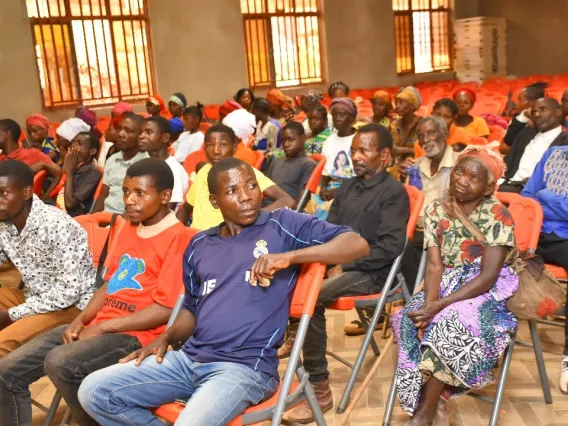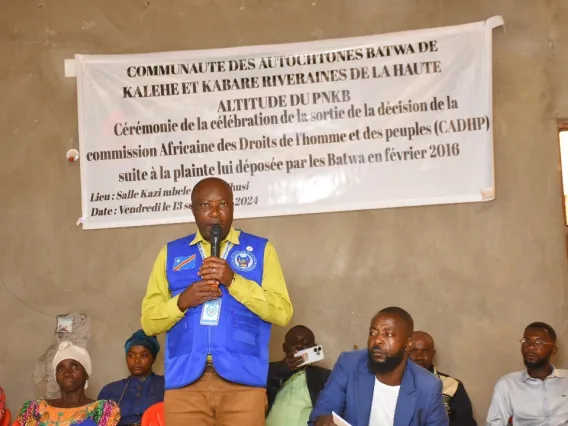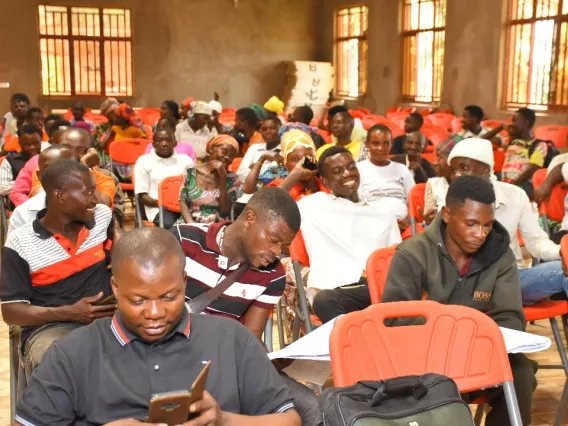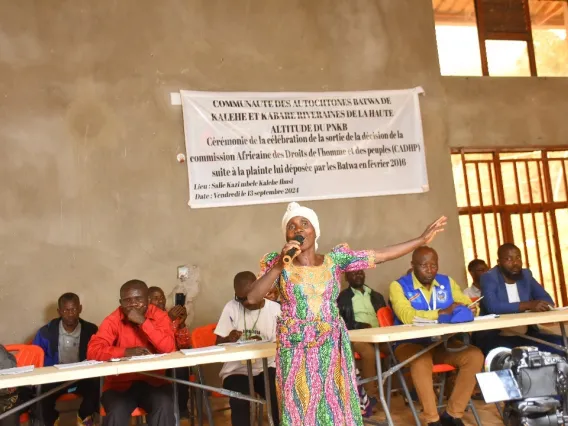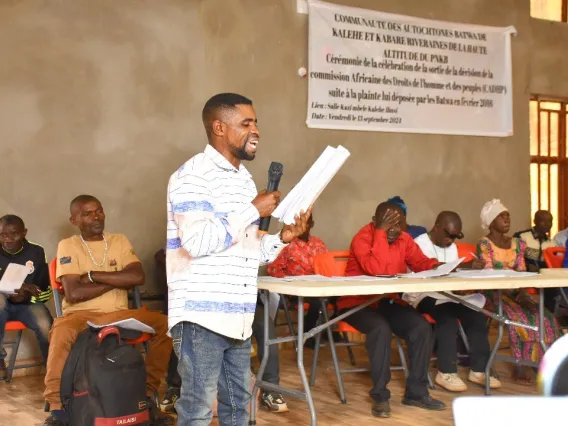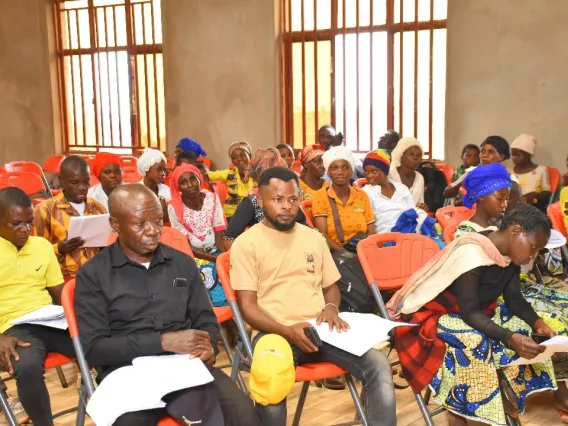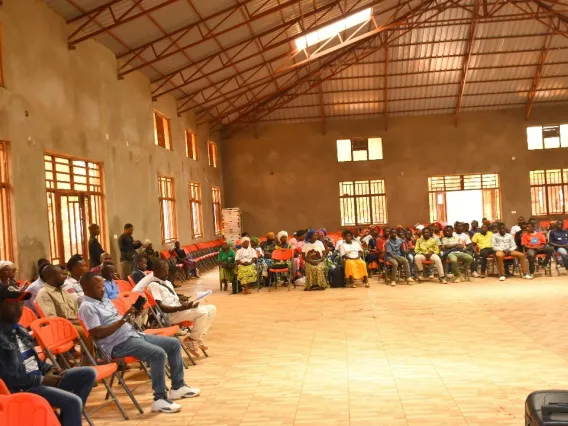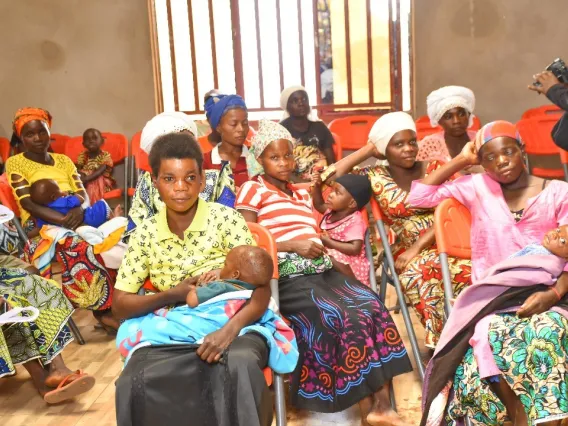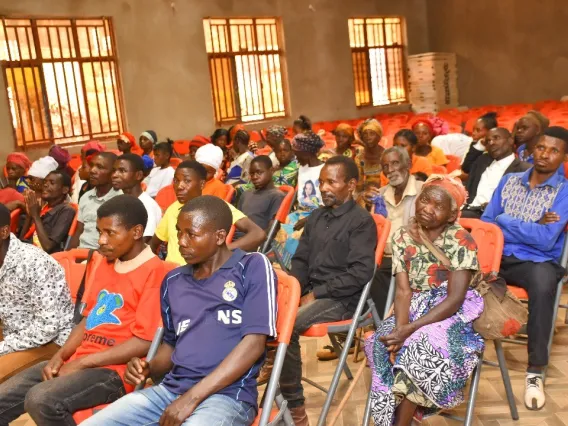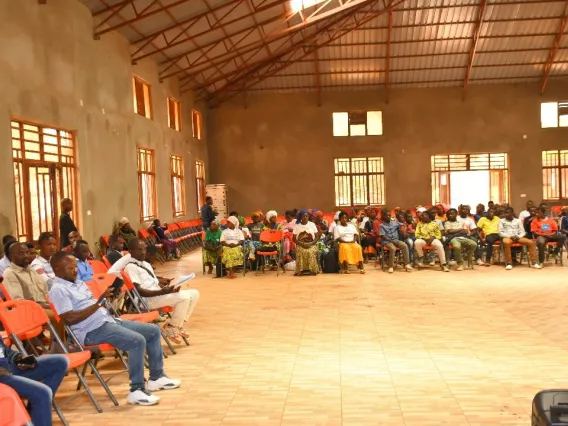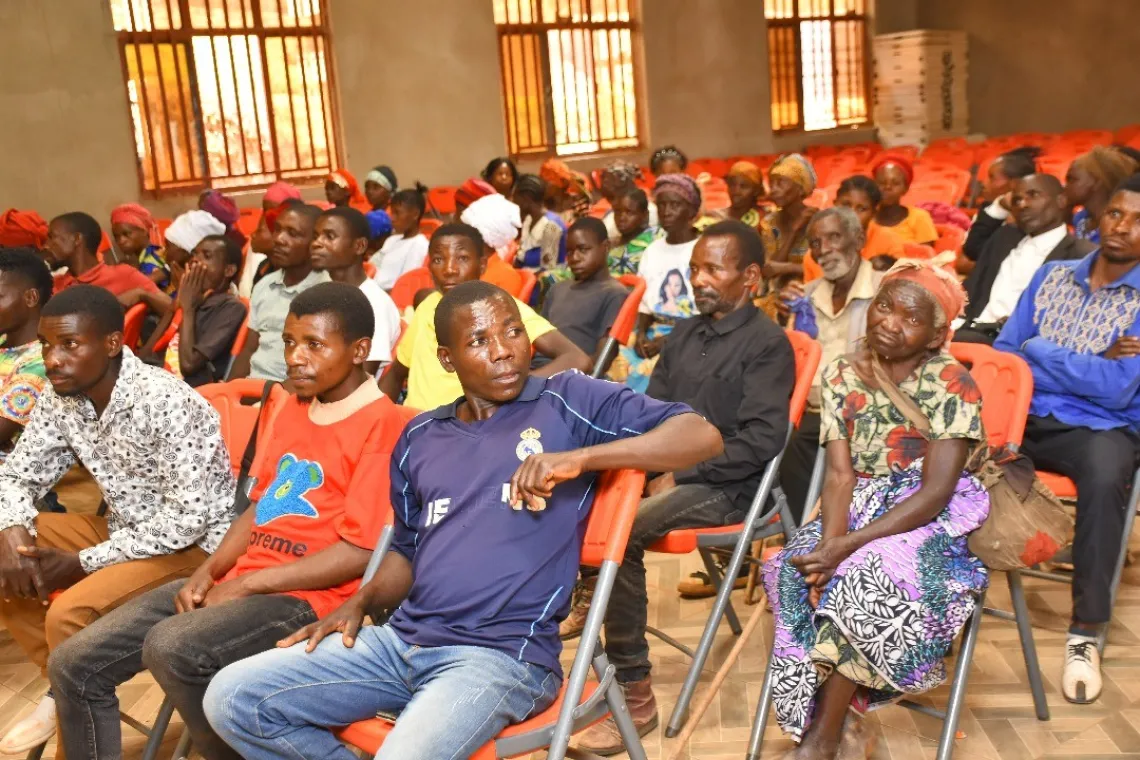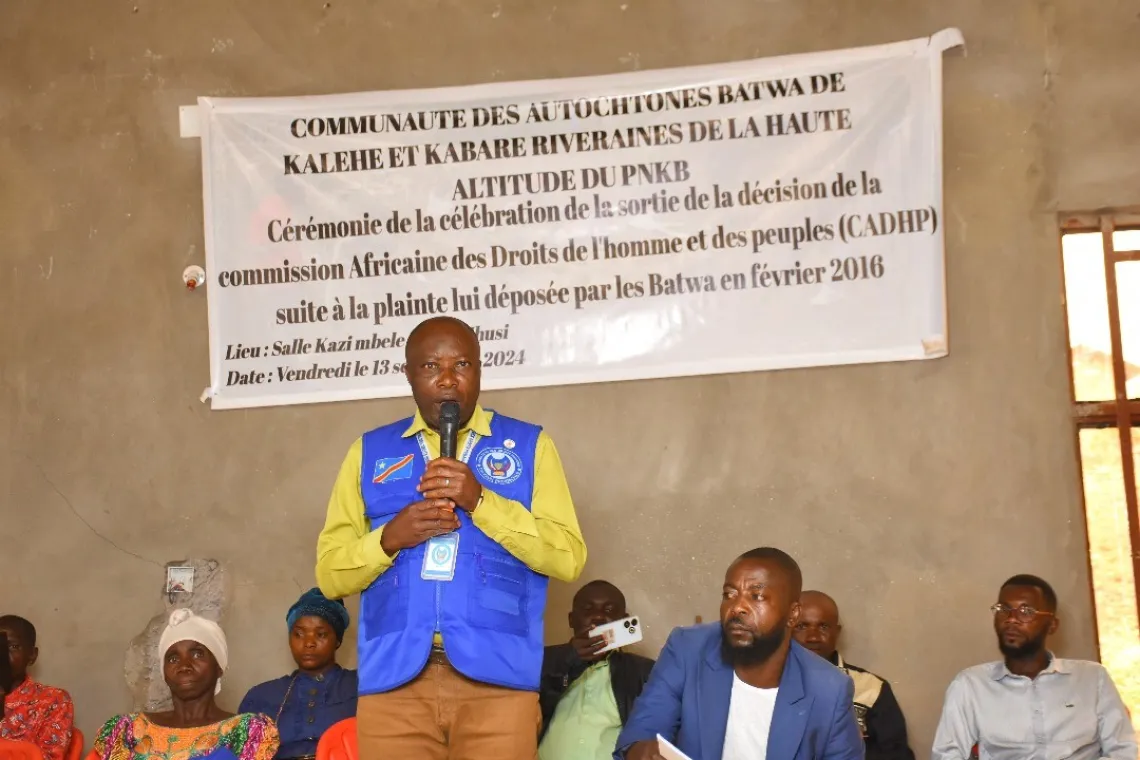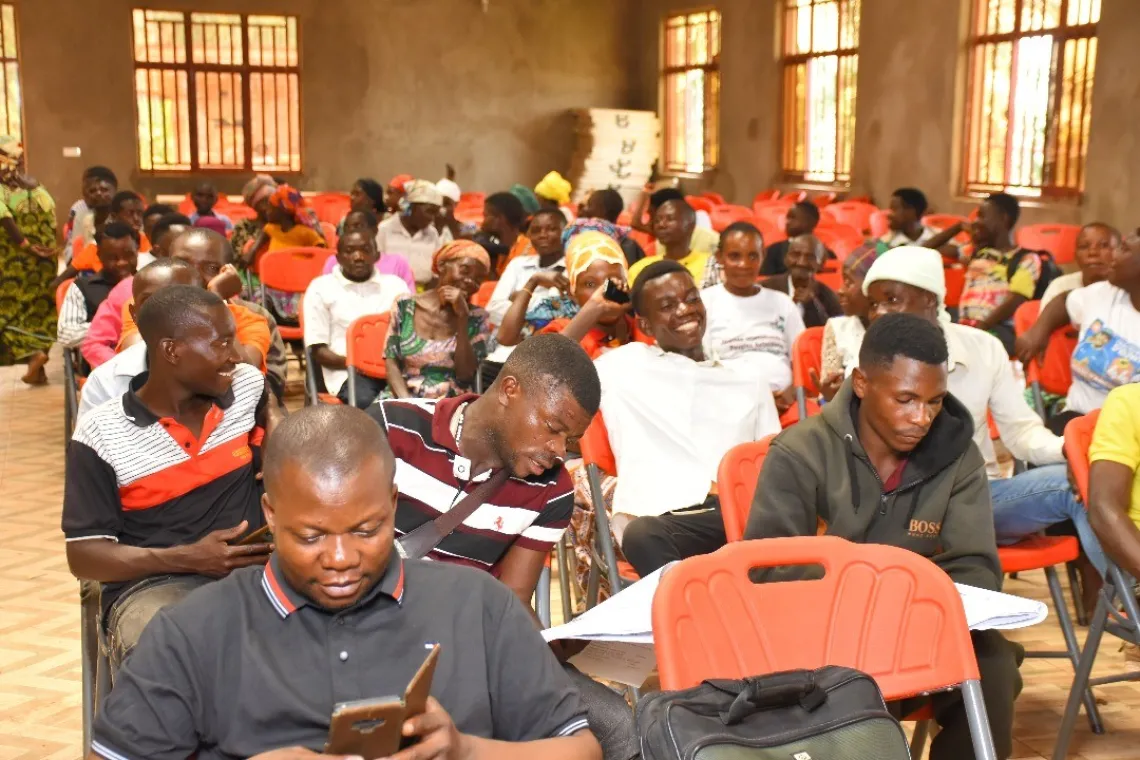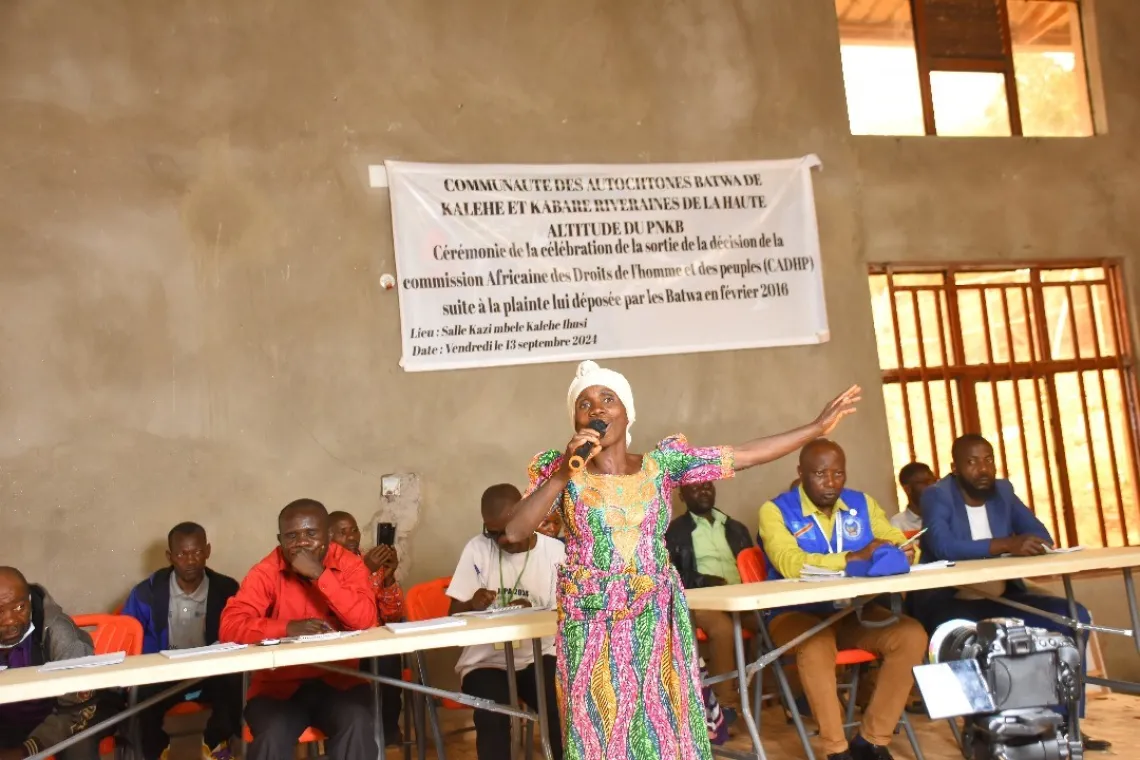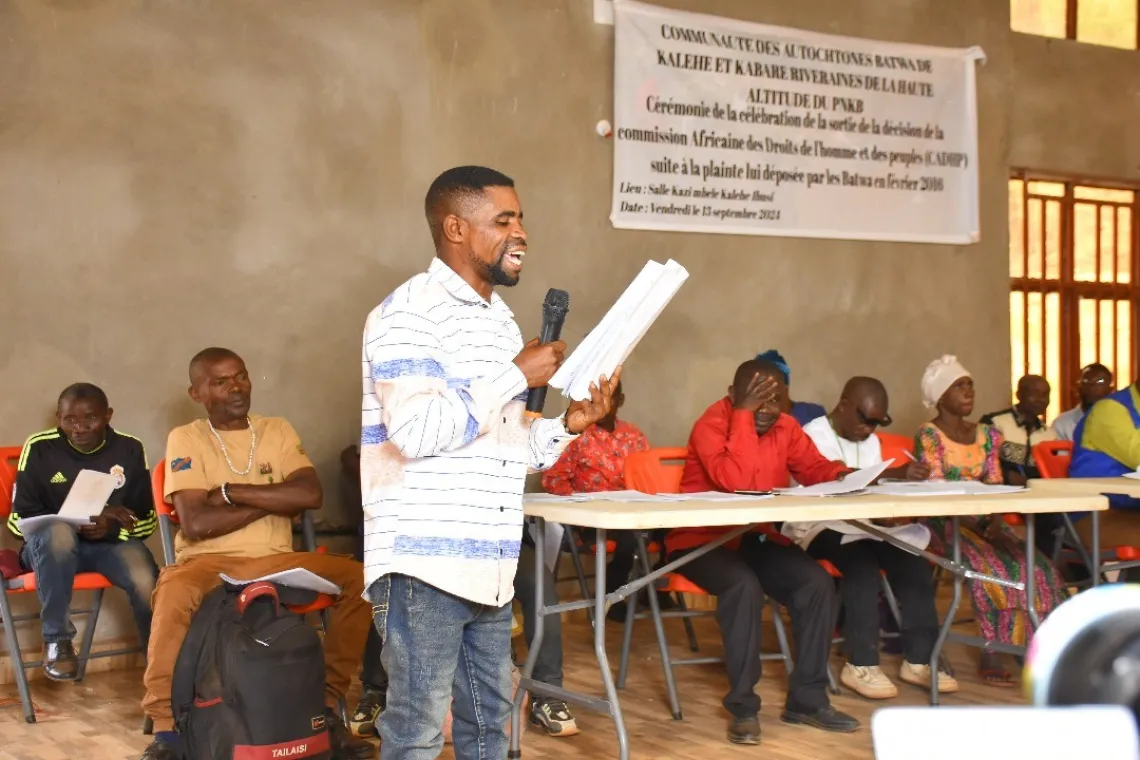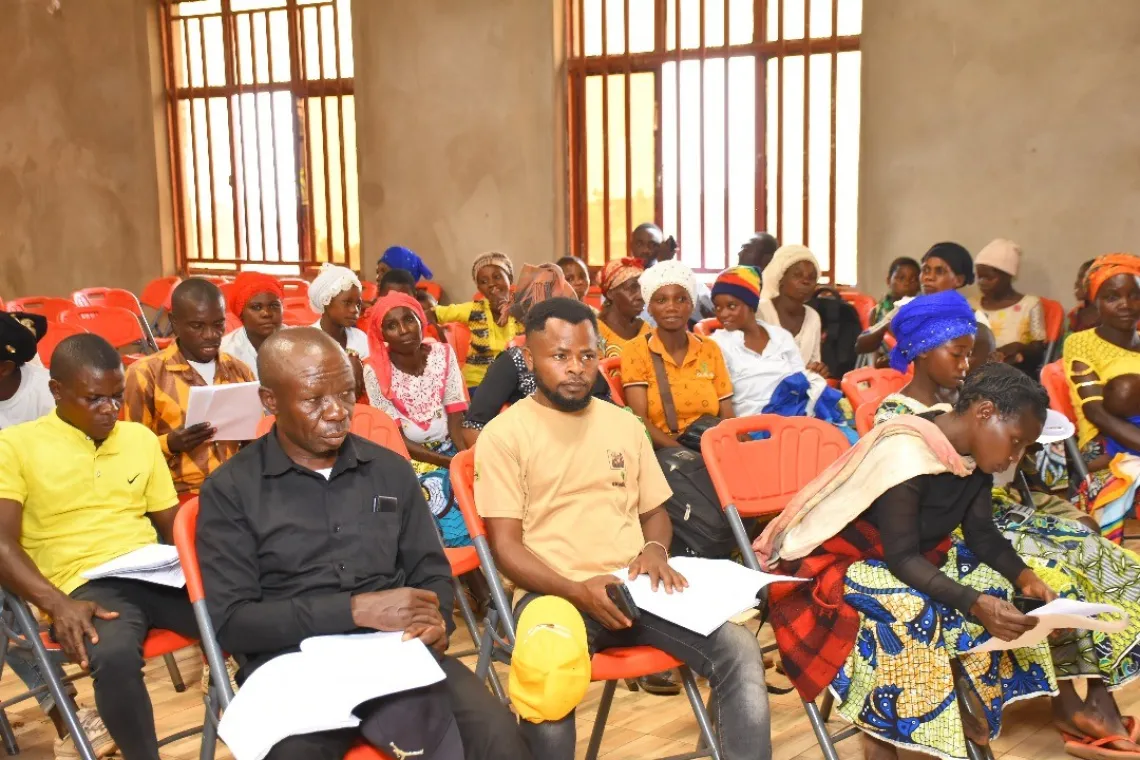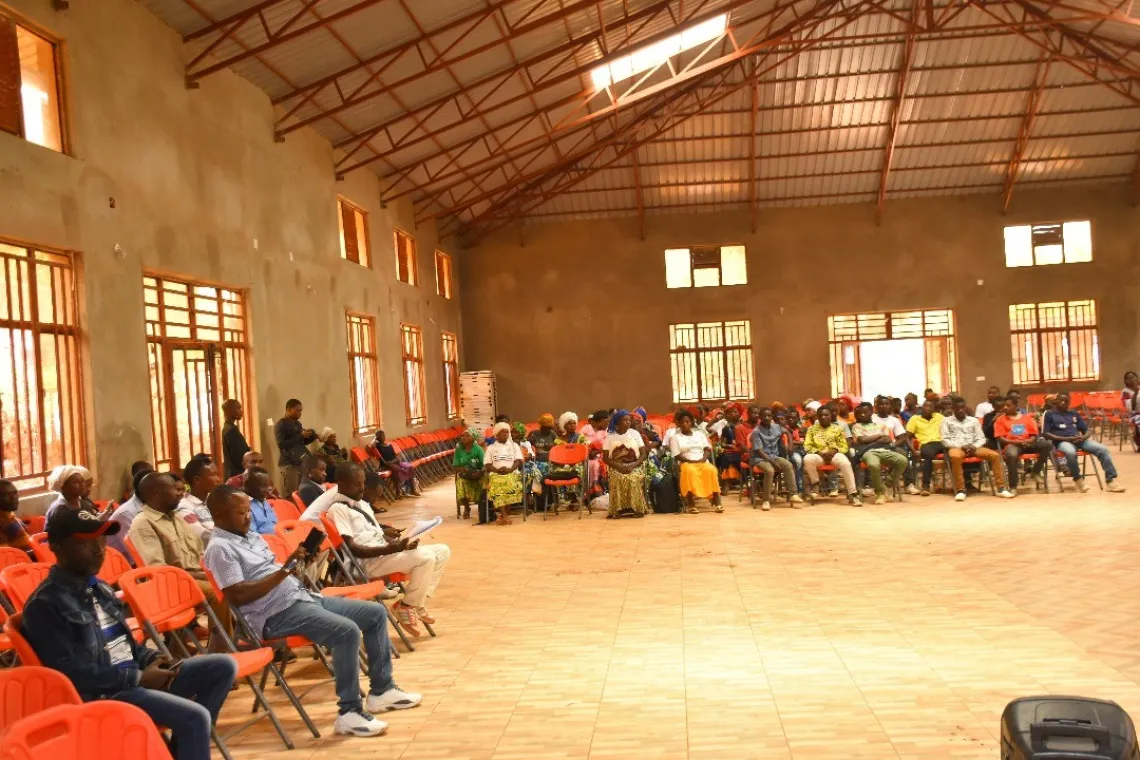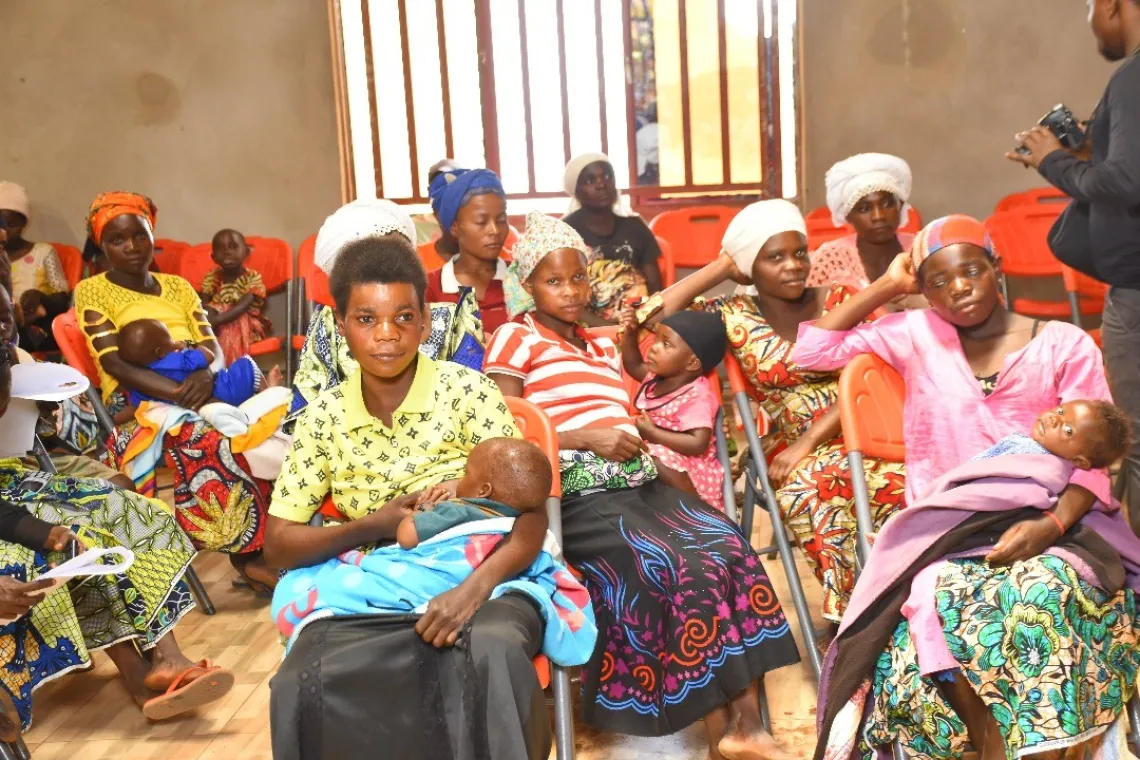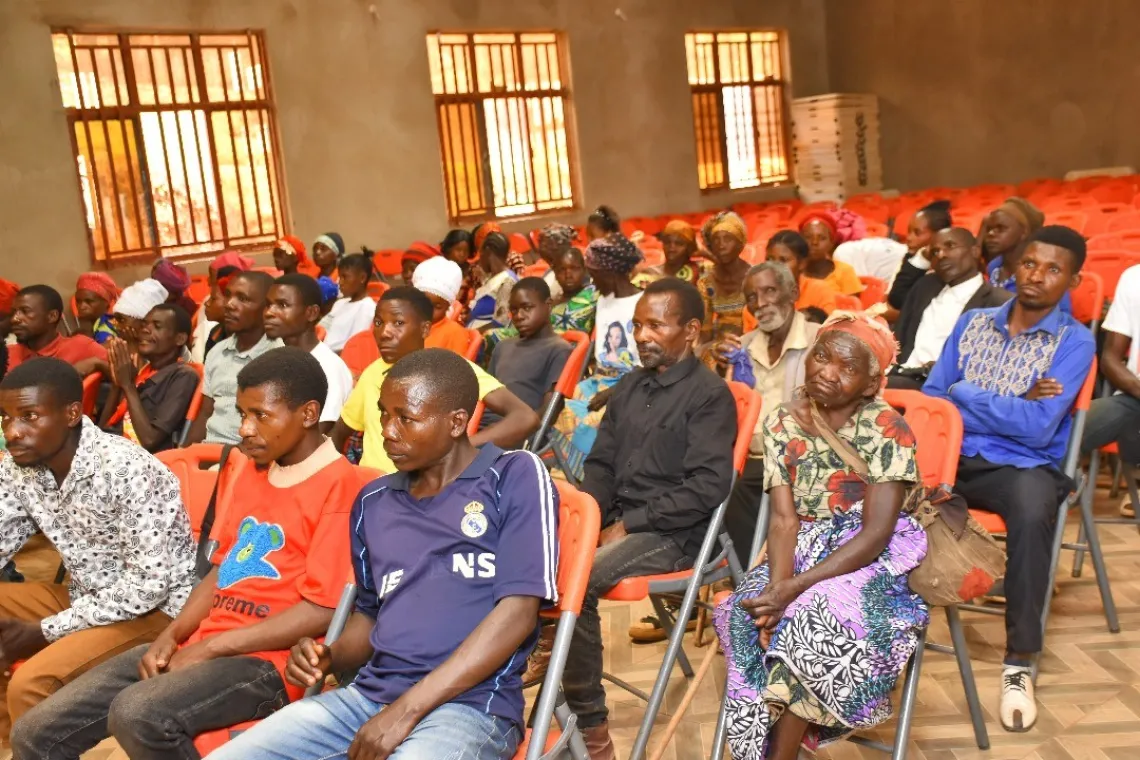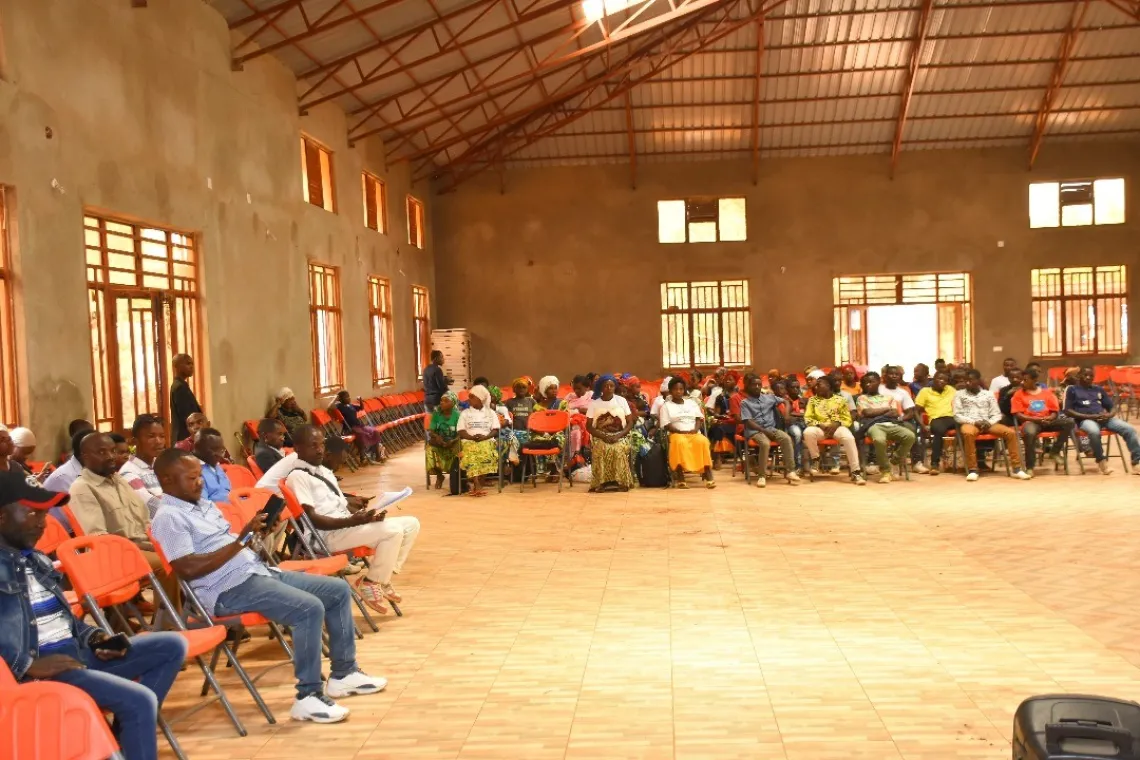The African Commission sets a significant precedent for Indigenous Peoples' land rights in the context of conservation
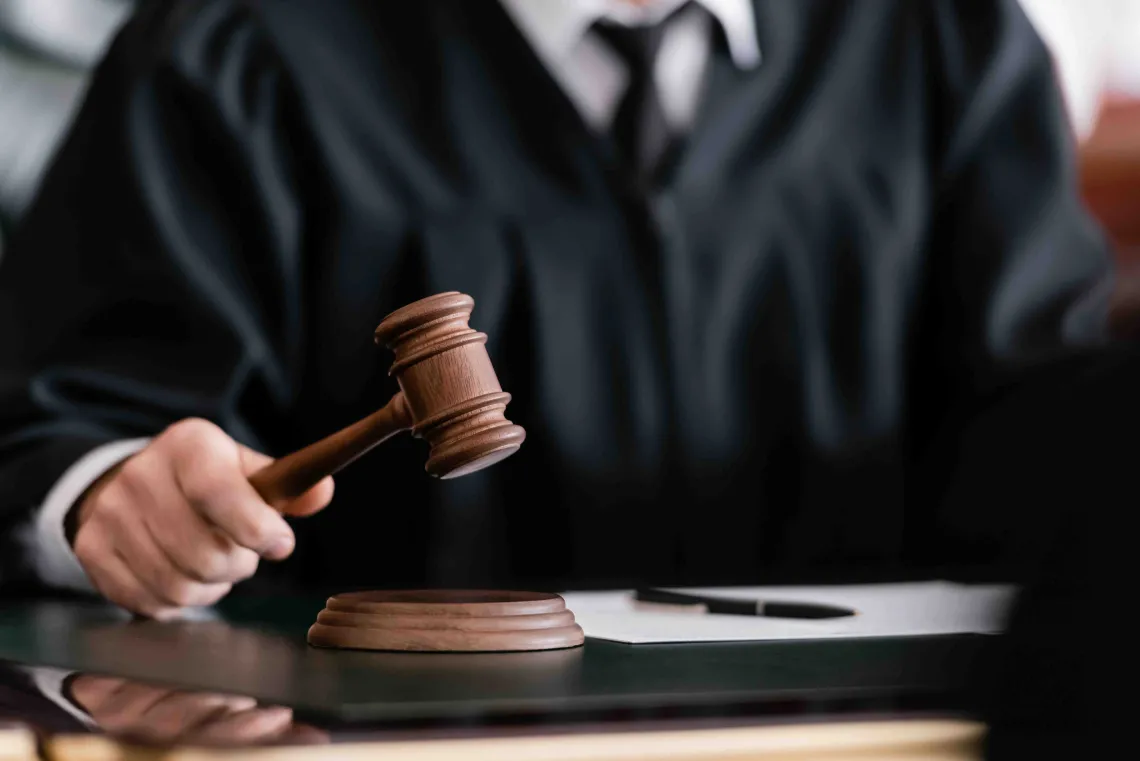
The Commission’s decision on Kahuzi-Biega National Park is an important victory for the Batwa people of the Democratic Republic of Congo, as well as a step towards more inclusive conservation practices in the region.
Forest Peoples Programmes (FPP), Rainforest Foundation UK (RFUK), Amnesty International (AI) and Indigenous Peoples’ Law and Policy Programme (IPLP) enthusiastically welcome an historic decision from the African Commission of Human and Peoples Rights last week in favour of the Batwa people of the Democratic Republic of Congo. Following a decades long legal battle, the Commission found that the DRC government violated multiple human rights protected by the African Charter of Human and Peoples Rights (The African Charter), in a land rights case that dates back to the 1970s. The case was brought by Minority Rights Group (MRG) and Environnement, Ressources Naturelles et Developpement (ERND) on behalf of the Batwa People and was filed at the African Commission in 2015.
The case relates to the Kahuzi-Biega National Park (PNKB, by its French acronym) in eastern DRC. The Batwa were expelled from their ancestral land in the 1970s to create the park. The Indigenous People were given no compensation and no other land to live on. They have been campaigning for the DRC to return their land to them ever since.
This decision from the African Commission recognises for the first time not only that the DRC violated the Batwa’s rights when establishing the PNKB, but also that ‘fortress conservation’ - a conservation model based on creating strict protected areas that exclude people - failed to achieve environmental objectives. This decision from the African Commission opens the door to other, better conservation practices.
"I was happy to hear it. It is a feeling of satisfaction for us Batwa to learn of this decision regarding our complaint and the recommendations addressed to the DRC in our favour,” said a victim of the evictions who chose to remain anonymous.
“But we still have some concerns, such as when will we become owners of our land and when will all those recommendations be fully implemented and respected by the state? We have suffered so much and for so long, now the community deserves to go back to their land and have their rights respected.
“We thank the African Commission for this decision, and we hope that it will not stay as a dead leaf and that it will be considered by our government. Finally, I ask all the indigenous Batwa to take ownership of this decision and to protect itself from any illicit act linked to the destruction of biodiversity", said a Twa, victim of the evictions who chose to remain anonymous.
The Batwa people have been living on their ancestral lands at Kahuzi-Biega for centuries. They are one of forest-dwelling peoples and among the most marginalised communities in the DRC. Their eviction from their land has had an enormously detrimental impact on the pursuit of their traditional lifestyle, religious and cultural life, and their very existence as an Indigenous People. They have not only been denied access to the natural resources located on their lands but have faced deep and entrenched discrimination in their access to the most basic services, including education and health care. But above all and since 2019, this People has been the subject of serious violations and repeated attacks, in particular allegations that militarized eco-guards of the park raped, killed and terrorized communities returning to their ancestral lands. This has been all very well documented by MRG in an investigative report from 2022.
In its decision, the African Commission found that the DRC government violated at least 10 articles of the African Charter, to which DRC is a signatory and party. These included the rights to life, to property, to natural resources, to development, to religion and to culture.
‘Crucially the African Commission has recognised that the Batwa, and consequently many other Indigenous Peoples all around the continent, have a critical role to play in conserving and protecting their land and natural resources,” said Jennifer Castello of FPP.
“The Commission has recognised that the so-called ‘fortress conservation’ is ineffective for preserving and protecting the biodiversity of PNKB. To succeed, conservation has to be based on securing Indigenous Peoples’ land rights, not on evicting them from the lands they have conserved for generations”.
Given that the DRC has recently adopted a specific legislation to protect the rights of Indigenous Peoples in the country, it is about time that the Batwa of the PNKB finally obtain justice and receive support to go back to their land.
FPP, RFUK, AI and IPLP urge the DRC to fully respect the Commission’s calls to the government and to take immediate steps to remedy the violations experienced by the Batwa over decades. We also urge all donors and conservation organisations engaged in the DRC to work with the government to fully implement the decision, ensure that conservation at PNKB recognises and respects the rights of the Batwa to their ancestral lands, and supports the People to take the leading role in conserving and protecting them.
More broadly, we urge the government and its international partners to provide redress to other victims of ‘fortress conservation’ in DRC’s other protected areas and to ensure that all conservation initiatives are implemented through rights-based, community-centred approaches.
Signatories:
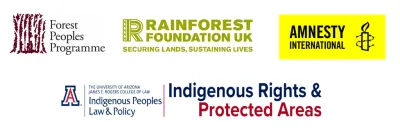
Declaration of the Batwa Indigenous People (FRENCH) Original
Declaration of the Batwa Indigenous People (English) Translated Version
Joint Statement - African Commission Decision on PNKB
Photos of Batwa's celebration about the decision


